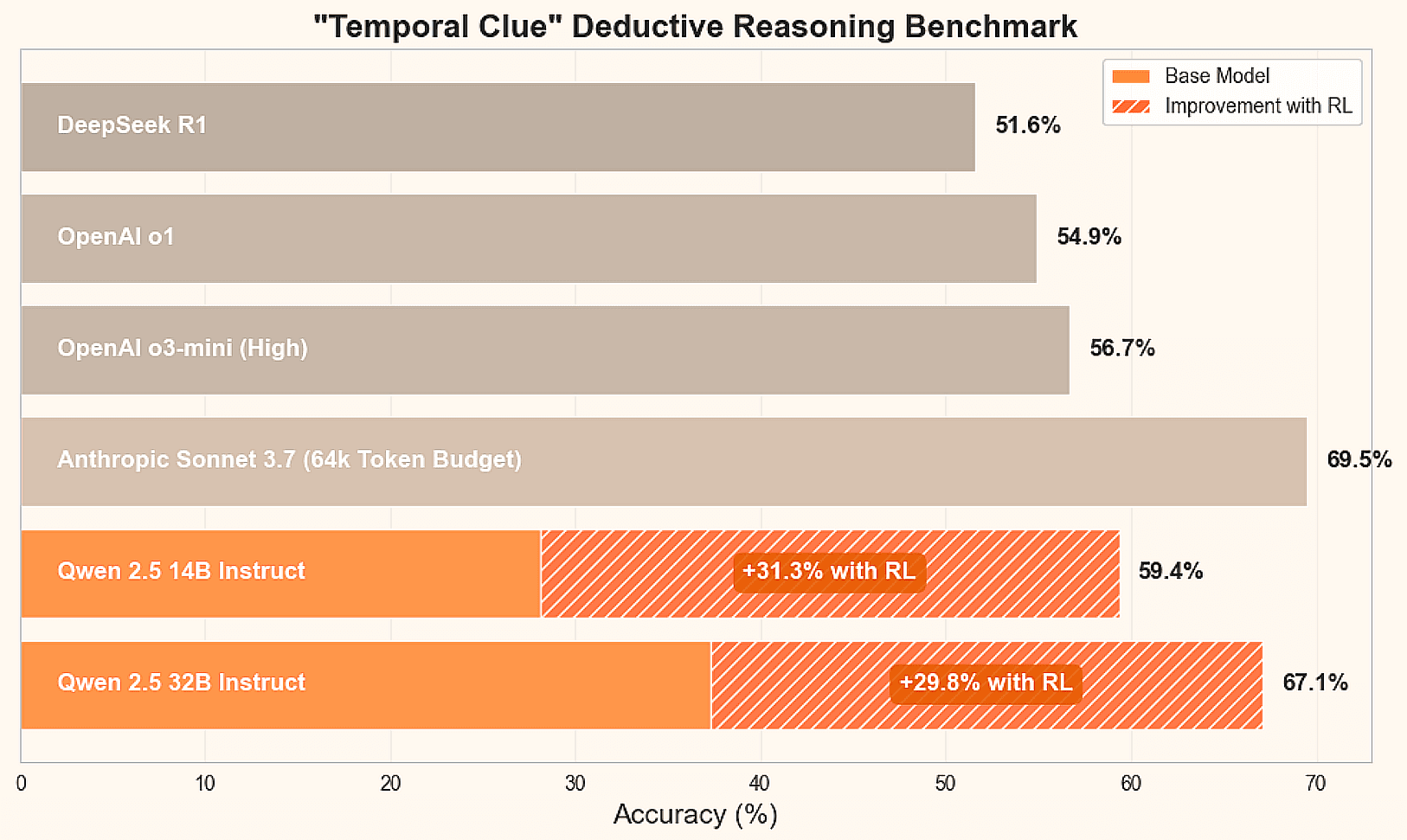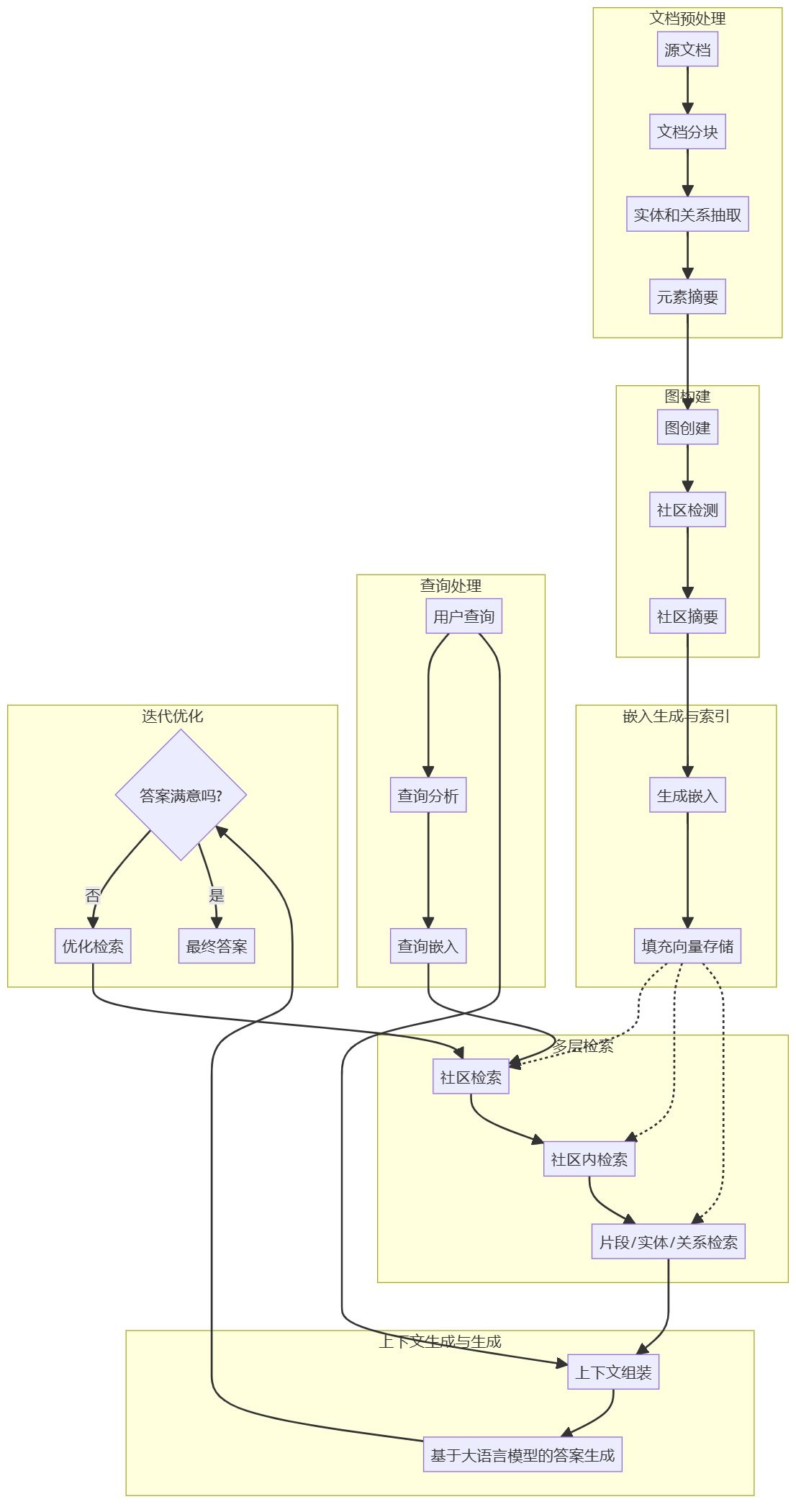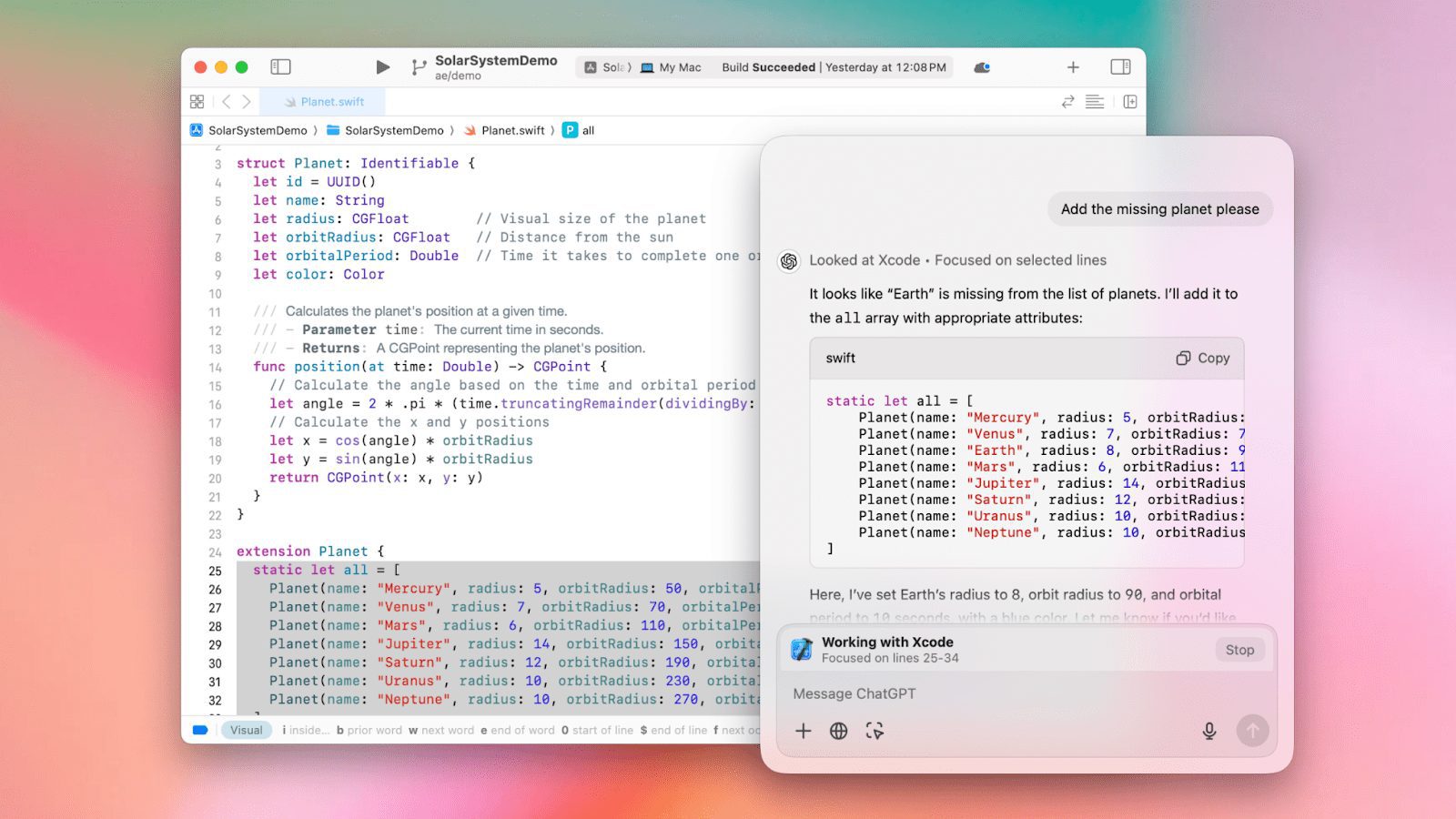Windsurf vs. GitHub Copilot: 4 Key Differences and How to Choose
What is Windsurf?
Windsurf is an AI-powered coding assistant that offers a range of features to streamline the coding process for developers. With GitHub Copilot Similarly, it utilizes machine learning models to understand code context and provide intelligent code completion. However, Windsurf features a proprietary language model that is designed specifically for its platform and offers the option to use GPT-4 in the Premium plan. The model is trained on a diverse dataset and focuses on providing accurate and contextualized code suggestions and solutions.
The platform enhances developer productivity by integrating with popular IDEs such as IntelliJ, PyCharm, and Android Studio. Features include AI-driven auto-completion, intelligent code search, and AI-powered chat. These tools help developers generate code snippets, efficiently search for relevant files and code, interact with AI to refactor code, debug, and even generate detailed documentation to meet a wide range of programming needs and optimize coding workflows.
This article is part of a series of articles about GitHub Copilot: A Complete Guide to Features, Limitations, and Alternatives.
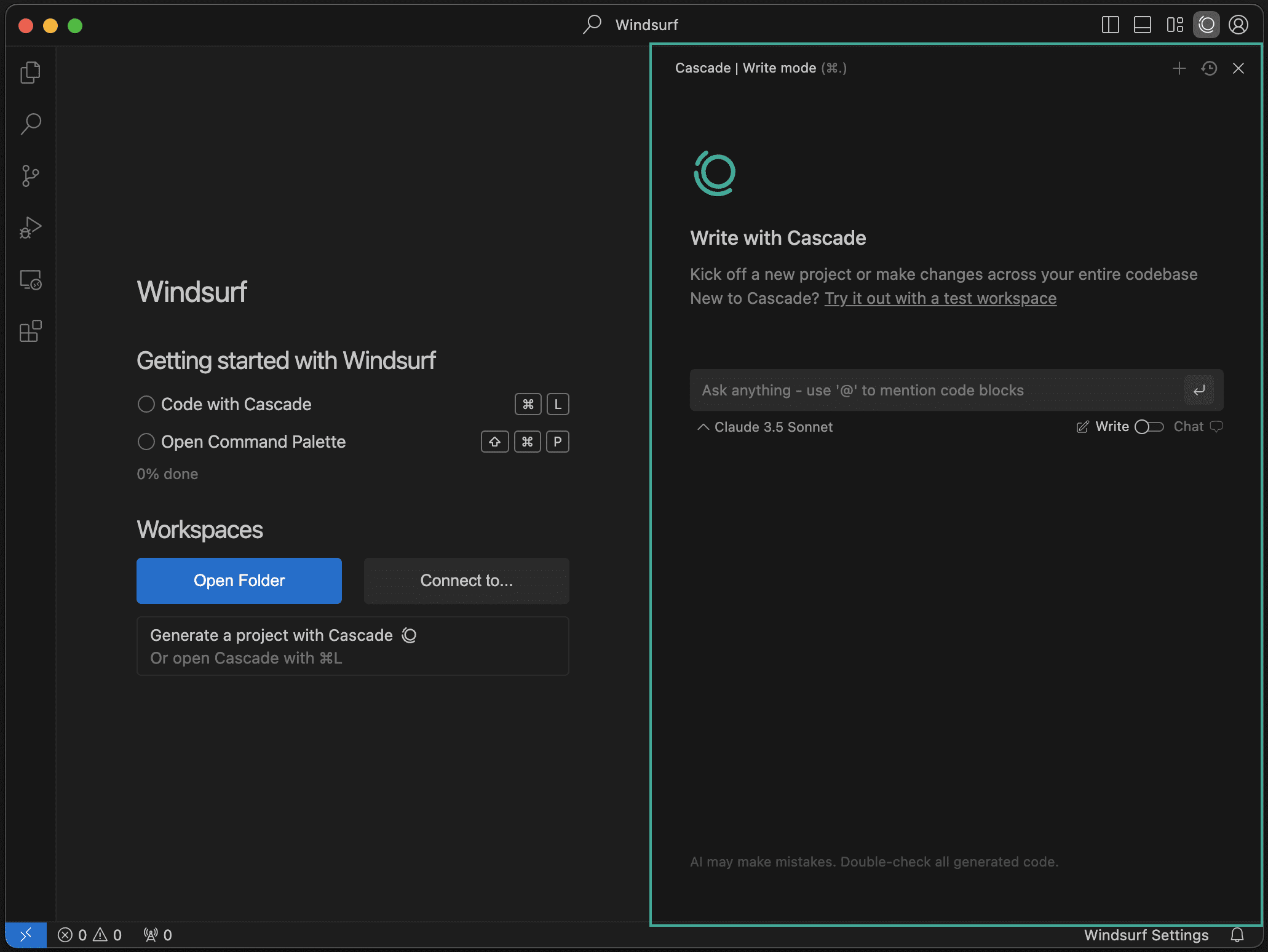
What is GitHub Copilot?
GitHub Copilot Copilot is an AI-powered code assistant that helps you write better code faster. The tool is powered by GitHub, one of the most popular platforms among developers, and Copilot is designed to understand your code and provide you with relevant suggestions.
GitHub Copilot's main strength is its ability to understand the context of code and provide suggestions for entire lines or chunks of code. It is powered by GPT-4 and OpenAI's Codex, a large language model (LLM) trained for code scenarios, based on a large dataset of open source code.
GitHub Copilot supports integration with Visual Studio Code, JetBrains IDE, Vim, Neovim, and Azure Data Studio, giving you access to its features directly from the IDE. It also supports multiple programming languages, making it a versatile tool for developers in different fields.
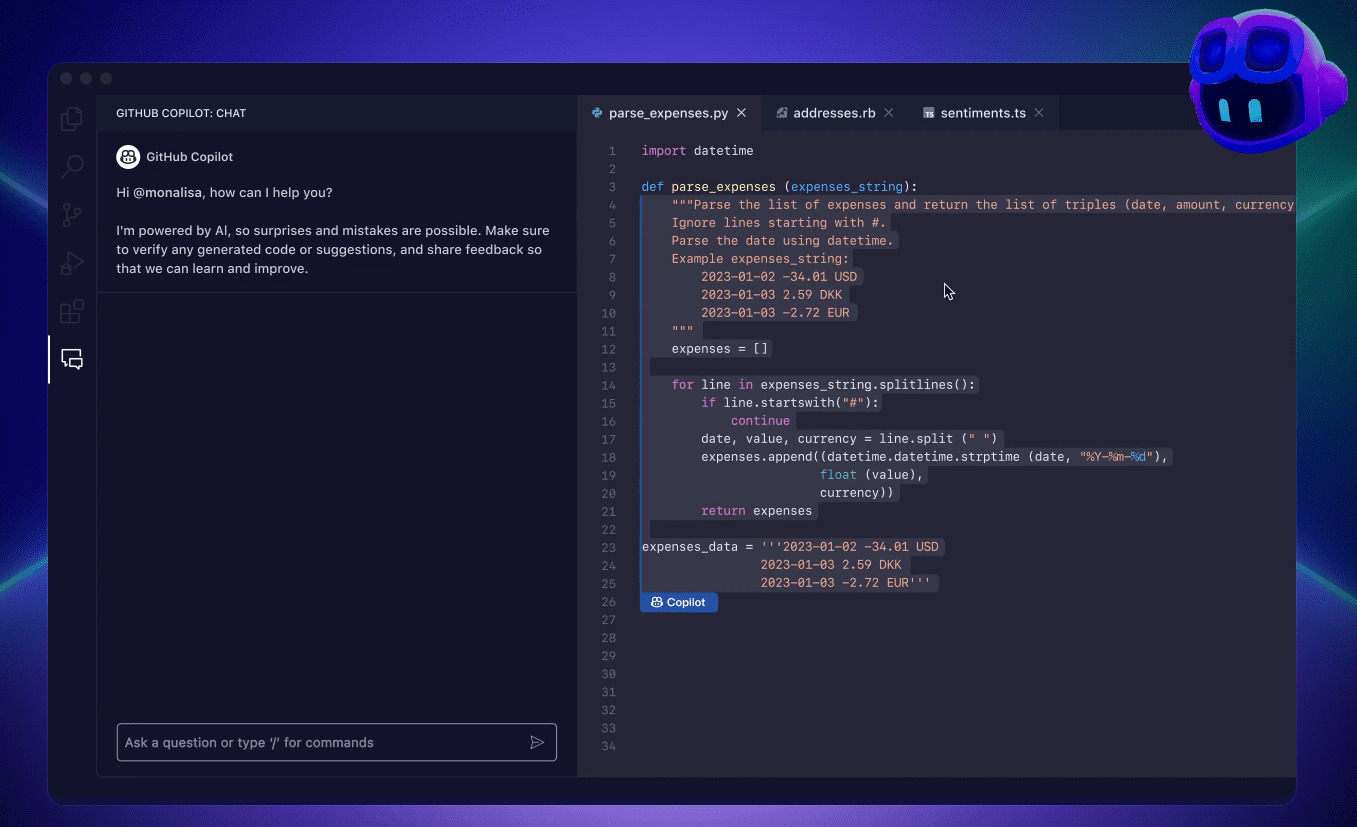
Windsurf vs. GitHub Copilot: 4 Key Differences
Let's take a look at the main differences between these two coding platforms.
1. IDE integration
Windsurf supports several IDEs, including IntelliJ, PyCharm, WebStorm, GoLand, PhpStorm, CLion and Android Studio.
GitHub Copilot currently supports Visual Studio Code, Visual Studio, JetBrains IDE, Vim, Neovim, and Azure Data Studio.
2. Technology and functionality
Windsurf uses its proprietary Large Language Model (LLM) to generate code snippets and suggestions, as well as support for GPT-4 in its Paid Teams program.It offers AI-driven auto-completion, intelligent code search (to help developers find files and code relevant to their intent), and AI-powered chat (to allow developers to generate sample code, refactor existing code, suggest fixes for bugs, and generate documentation). bug fixes, and generate documentation).
GitHub Copilot is based on OpenAI's Codex and GPT-4 models, and is able to provide whole lines or chunks of code suggestions based on context, with data sourced from a large number of public GitHub repositories. It provides a chat interface for developers to debug existing code or create new code, scan generated code for security vulnerabilities, provide AI suggestions in real-time, and generate personalized code documentation with inline references. New features also include automatic generation of descriptions for pull requests.
3. User experience and community
Focused on enhancing the user experience with a clean and intuitive interface that integrates seamlessly with a variety of IDEs, Windsurf has a growing community with a dedicated channel on Discord for support and user interaction. This environment fosters collaboration among developers who can share experiences, seek advice, and contribute to platform improvements.
On the other hand, GitHub Copilot benefits from GitHub's large and active community. Users can tap into the collective knowledge and expertise of millions of developers, which creates a rich and dynamic ecosystem for Copilot, and GitHub Copilot's integration with popular IDEs and user-friendly interface make it both convenient and easy to use for developers. Continuous updates and enhancements to the platform are made possible by community feedback and the evolving needs of developers.
4. Pricing and planning
Windsurf offers a "free forever" individual plan that includes fast code autocompletion, AI chat assistant in the editor, unlimited usage, license-based data training, support via Discord, and encryption in transit. Additionally, there is a Team Plan for $12 per seat per month (up to 200 seats) that includes all the features of the Individual Plan, with the addition of an administrator usage dashboard, seat management and invitations, advanced personalization of the codebase, GPT-4 support, and organization-wide zero-day retention.
GitHub Copilot is available as a personal plan priced at $10 per month or $100 per year, or as an enterprise plan for $19 per user per month. The Enterprise plan includes advanced features such as organization-wide policy management and audit logging, and Copilot also offers a 30-day free trial that allows users to explore its features before subscribing.
Windsurf vs. GitHub Copilot: how to choose?
When choosing between Windsurf and GitHub Copilot, the following factors can be used to ensure that the choice meets your specific needs:
- Integration and Compatibility: Evaluate the IDEs you currently use or plan to use If your preferred IDE is better supported on a particular platform, this may significantly influence your decision.
- Function sets and technologies: Determine which features are critical to your workflow. Both platforms offer similar functionality, but it's recommended that you try them out in real-world scenarios to experience the IDE's code-completion, chat, and documentation features and see which platform fits your programming style better.
- User experience and community support: Consider your preferred type of community and support style; Windsurf's dedicated Discord channel offers more intimate community interaction and support, while GitHub Copilot benefits from a large and active community that may provide you with a wider range of insights and networking opportunities.
- Pricing structure: Evaluate your budget and the pricing plans for each platform. If you're an individual developer or a small team, cost may be a deciding factor; Windsurf offers free individual plans and attractive team plans that may be appealing to budget-conscious users, while GitHub Copilot's pricing structure, which includes a free trial period, provides flexibility for exploring its features.
By carefully considering these factors, you can make a more informed decision between Windsurf and GitHub Copilot, ensuring that the platform you choose matches your specific development needs, preferences, and budget constraints.
© Copyright notes
Article copyright AI Sharing Circle All, please do not reproduce without permission.
Related posts

No comments...

